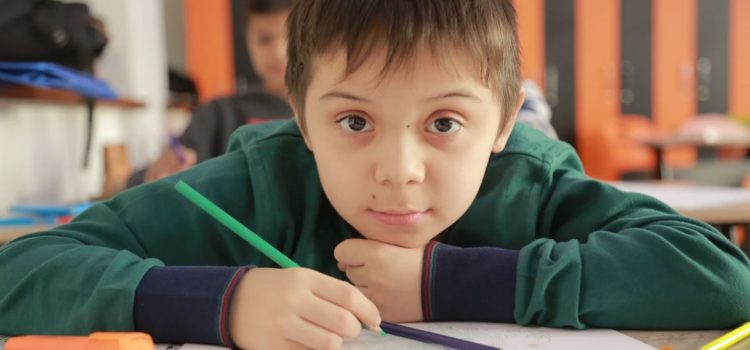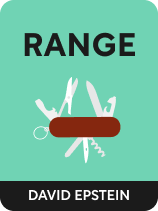

This article is an excerpt from the Shortform book guide to "Range" by David J. Epstein. Shortform has the world's best summaries and analyses of books you should be reading.
Like this article? Sign up for a free trial here .
Why is it better to experiment with different skills and hobbies rather than mastering one specialty? What is the importance of transferable skills?
The traditional way of thinking says that it’s best to choose one specialty and focus your efforts on mastering it. However, according to David Epstein, the author of Range, it’s actually better to have a broad range of transferrable skills than one specialist skill.
Here is why broad experience is better than specializing.
Why It’s Better to Have a Broad Range of Experience
What is the importance of transferable skills? In his book Range, Epstein establishes the principle that broad learning teaches transferable skills. Basic training in a wide range of activities teaches a unique kind of skillset—one founded on instincts and principles that apply across disciplines rather than habits that apply in only one context.
A period of broad experience exploration provides robust expertise that is transferable to unfamiliar situations. In some cases, it even leads to greater skill than someone who narrowly specialized. To prove this, Epstein dives into the world of professional musicians.
One of the greatest groups of musicians in history was the figlie del coro, a classical ensemble in 17th-century Venice comprised entirely of orphaned girls. The figlie performed for royalty, had pieces composed specifically for them by greats such as Vivaldi and Haydn, and were widely regarded as the finest musicians in the world. The figlie’s success wasn’t due to extreme amounts of deliberate practice.
Epstein recounts that the girls only had formal lessons three days a week, although they were allowed to practice in their spare time—which wasn’t much. The orphanage eventually devoted more time to music practice after the figlie became famous, but at first, the orphans were only allowed to practice for an hour a day, in between schoolwork and chores.
According to Epstein, what made the figlie’s training uniquely successful was the number of different instruments they were required to learn. The girls were encouraged to learn every instrument the orphanage owned, and many achieved virtuoso-level skill on multiple instruments.
This same phenomenon has been studied among modern-day musicians. A study conducted at a high-level music boarding school found that the highest-performing students didn’t practice more than others, took fewer formal lessons, didn’t start playing at a younger age, and didn’t even come from musical families. Instead, what set them apart was the number of instruments they knew how to play. The most exceptional students typically spread their practice time across three instruments.
| The Limits of Transferable Learning While there is evidence in favor of broad learning across musical instruments, it’s important to note that there are limits to how “broad” transferable learning can be. Back in 1923, psychologists distinguished between “near transfer” and “far transfer” of learning, based on the principle that experience can transfer proportionally to the number of similar elements shared by two activities. For example, you can use your knowledge of how to drive a car to learn how to drive a bus—near transfer. Similarly, Epstein asserts that near transfer allowed the figlie to transfer their musical skills across surprisingly dissimilar instruments, for instance, from singing to the violin. The two skills have enough in common for near transfer to function. Far Transfer, on the other hand, would be like transferring your chess experience to better learn mathematics, and it’s been largely debunked. In the 19th century, Latin was a core component of an American schoolchild’s education because it was assumed that learning Latin would make children “smarter” overall. Many people still hold the belief that learning something like chess or piano will somehow enrich your overall cognitive faculties, and some studies have confirmed this assumption. However, in 2016, a couple of researchers conducted a meta-analysis of these studies and found that many of them fell prey to a common fallacy—they mistook correlation for causation. Successful students enjoy playing music or chess because they’re stimulating activities; it doesn’t necessarily make them smarter. When these studies were adjusted under more narrow conditions, the correlation all but disappeared. Still, as we’ll see in the rest of this guide, there are plenty of reasons to practice generalism, even if most of your specific skills don’t transfer from one discipline to another. |
Epstein suggests that broad learners create “abstract models” based on the commonalities across activities, internalizing skills that apply in multiple contexts. Narrow specialists, on the other hand, merely learn to repeat what they’ve already seen done.
For example, children learn to talk by hearing the rules of grammar implicitly applied in a broad variety of contexts. They don’t learn by repeatedly practicing selected sentences over and over, like formal music students do in deliberate practice. In the same way, musicians that learn multiple instruments discover a greater understanding of music that applies in all contexts.
| Does Knowing Two Languages Help You Learn a Third? Recent science shows that, just as it’s easier to learn a third musical instrument after you’ve played two, it’s easier to learn a third language if you’re already bilingual. A study from Israel compared two groups of sixth-graders—one group of immigrants from the former Soviet Union that spoke both fluent Russian and Hebrew, and one group of natives who only spoke Hebrew. Interestingly, the kids who spoke Russian were not only better at learning English, they were more proficient in Hebrew than the native speakers who only spoke Hebrew. Additionally, if you learned your second language later in life, you gain the additional advantage of discovering which language-learning strategies best work for you, whether that be a focus on reading and writing, conversing with native speakers, or even watching foreign movies. |

———End of Preview———
Like what you just read? Read the rest of the world's best book summary and analysis of David J. Epstein's "Range" at Shortform .
Here's what you'll find in our full Range summary :
- Why it's better to be proficient in a range of skills rather than becoming a specialist in one
- Why you're never “too late” to pursue something you’re interested in
- Why the nontraditional background of a generalist gives them an edge






